For many of the Congolese refugees who resettled through KRM’s Louisville office during this past year, Mandela Gapala greeted them at the airport with words of welcome in a shared language. At age 29, he speaks six languages, including English, Swahili, French, Kinyamulenge, Kirundi, and Kinyarwanda. He interprets part-time, helping other refugees navigate their new life in Kentucky.
Mandela arrived in the United States in February 2017 with his mother, father, seven siblings, and his sister’s two young children. They joined the growing number of Congolese refugees resettled in the United States because they face violence and discrimination due to their ethnic backgrounds. The Democratic Republic of the Congo has over 250 ethnic tribes; Mandela and his family are Banyamulenge.
“For so many years, other Congolese have said that we are not Congolese and that we have to go back where we came from,” Mandela explains. “Because of that, there are civil wars and we are very discriminated against. Those civil wars don’t stop, so my family and I had to leave the country because we were in danger.”
When he was 18, Mandela left his home in southeastern Congo with his family. They crossed the border into Burundi and reached a refugee camp, where they lived for ten years. They applied for resettlement and were placed with KRM’s office in Louisville. Because they did not have any family members in Louisville, KRM sought a co-sponsor from the Louisville community. Northeast Christian Church stepped forward to welcome the family. The team gathered household goods, furniture, and funds to assist the family.
“I was so surprised seeing so many white people at the airport,” Mandela says with a laugh. “I’ve seen only black people all my life.”
The co-sponsor team helped drive the family to appointments and visited their home. With the funds raised as a faith community, they paid for some of the family’s initial housing costs. For Mandela, they offered valuable language practice.
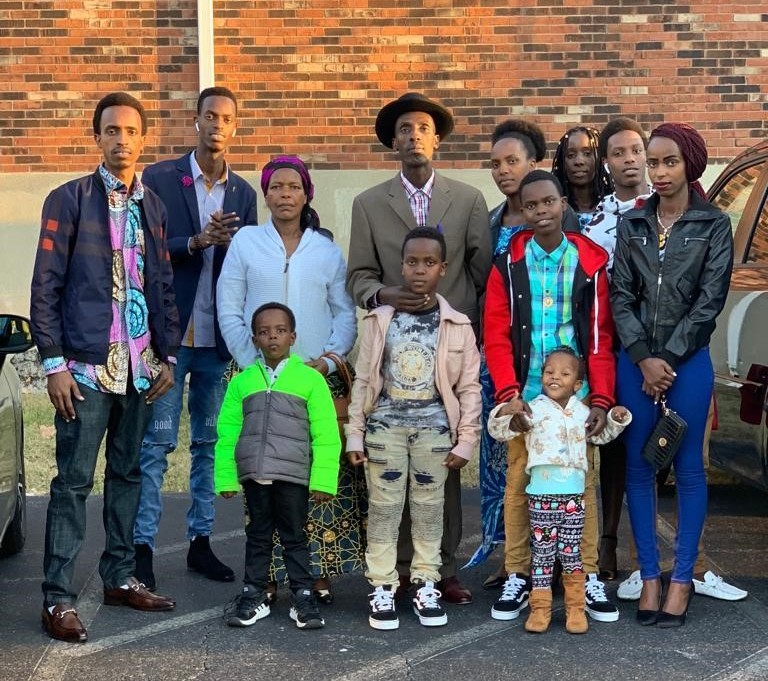
Mandela Gapala’s family on Christmas Day, 2018. Photo provided by Mandela Gapala.
“When I arrived here, I was not confident,” he says. “I was able to understand some. In my country, I spoke a little bit of English — but British. When I got here, the accent is different.”
Mandela found full-time work at Amazon and went back to school at Jefferson Community and Technical College. He continued building his language capacity and returned to KRM for paid interpreting work. His mother, father, and adult siblings began working, too. Younger siblings enrolled in school.
During one of his stints as an interpreter, he met hiring staff at the soon-to-open Omni Hotel. They held a job fair at KRM for various positions, and Mandela served as an interpreter for other refugees seeking interviews and applications. Afterwards, the representatives from Omni Hotel told him about the specific opening for hotel coordinator and asked if he wanted to apply.
He moved into the full-time housekeeping coordinator position in February 2018 to prepare for the hotel’s opening in March. In this role, he partners with 25 housekeepers and seven house men to ensure the 612 rooms are ready for guests. Because the Omni Hotel also hired Congolese newcomers in housekeeping positions, Mandela also utilizes his language skills throughout his work.
- Airport Arrival
Outside of his 40 hours at the Omni Hotel, Mandela takes nine credits at JCTC and interprets about eight hours each week at KRM. He often interprets for the employment services department by accompanying people to businesses to complete a job application or joining new hires for a training session in their first language.
“Refugees are struggling in different ways,” he explains. First, they are seeking where they can stay safe, he says. Then, newcomers need work to support themselves.
“In Louisville, there are a lot of jobs,” Mandela says. “Refugees are getting jobs. I know people who are moving from other states coming here to Louisville.”
A couple months ago, he and his brother moved into an apartment of their own. His older sister has plans to return to school. Mandela plans to transfer to the University of Louisville or another four-year school in order to study social work. When he can, he shares his story as a guest speaker for visitors, students, or volunteers.
“I like to work with people and refugees,” he adds. “I’m not doing anything special. I think I’m doing what I am supposed to do.”
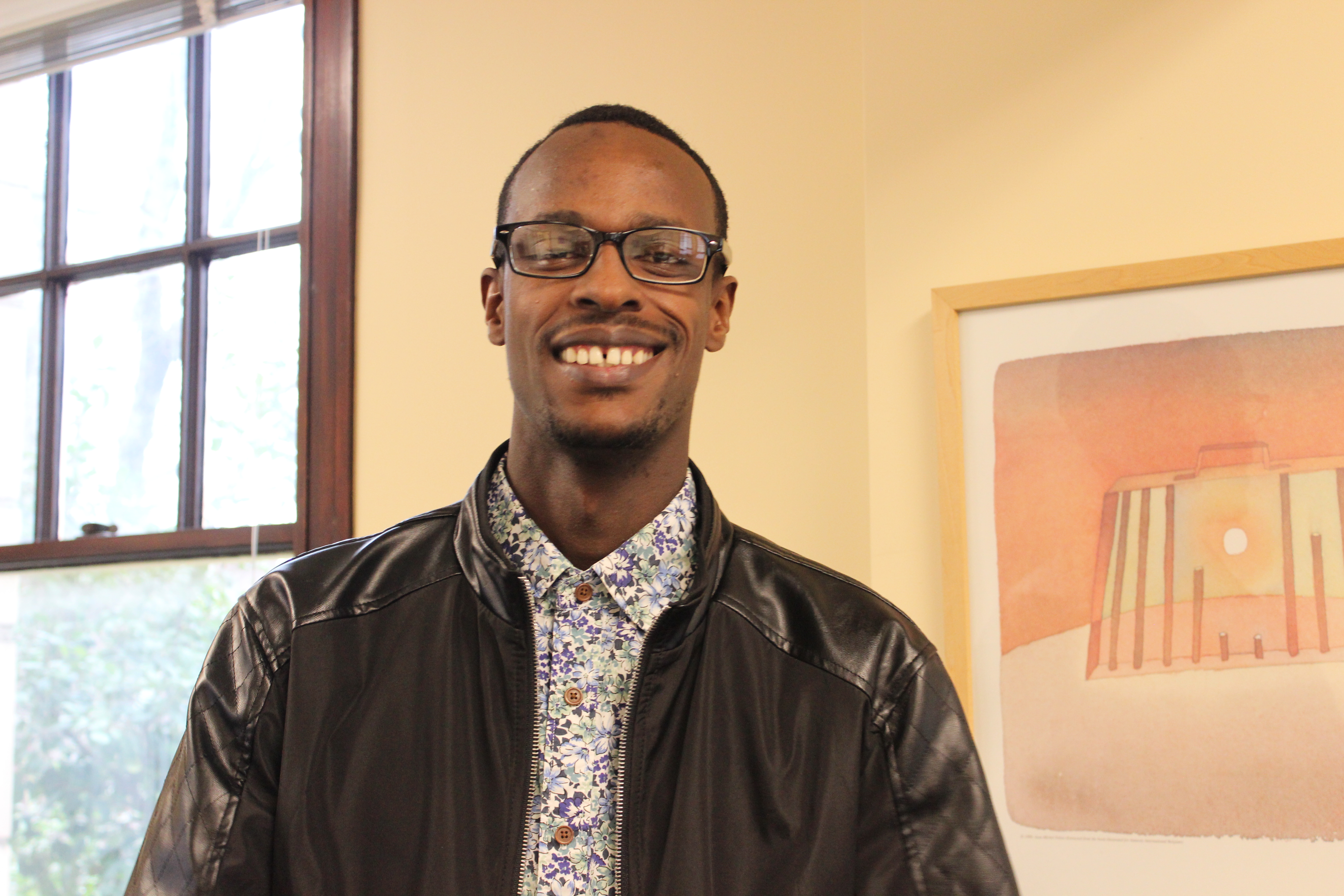
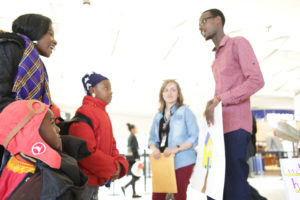
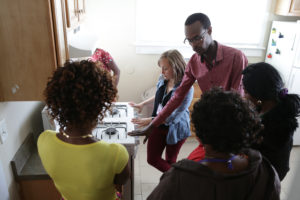
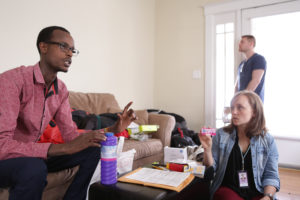
You must be logged in to post a comment.